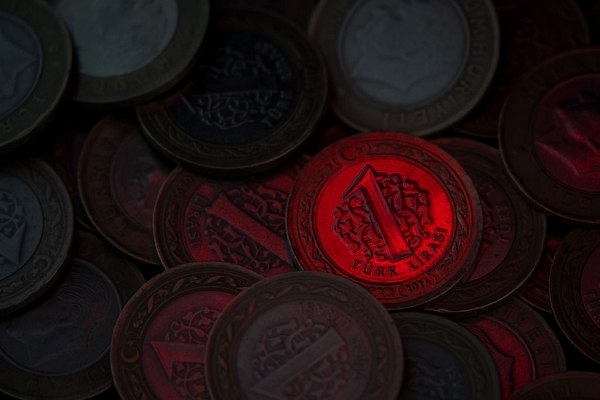World
Explained: Turkey’s Currency Crisis – And How It Can Affect India
- Turkey’s Lira has been in steep decline against the dollar, affecting, among other countries, India.
- Here, we examine the reasons behind the Lira’s steep fall.

Turkey’s national currency, the Lira, has shed 45 per cent of its value against the dollar. (Chris McGrath/Getty Images)
Turkey has been at the centre of global attention in the past fortnight because its national currency, the Lira, has shed 45 per cent of its value against the dollar. This sharp decline in the Lira’s value has had a ripple effect on emerging markets with the rupee in India also touching the 70-mark against the dollar. It would, therefore, be apt now to examine the reasons behind the Lira’s incredibly steep fall this year, which lie in the sphere of both economics and geo-strategic affairs.
First, the geo-political angle. Tensions have been mounting in recent years between the United States of America (US) on the one side and Turkey on the other, in relation to the support being extended by the US to a faction of the Syrian Kurds engaged in battle against the Islamic State. The People’s Protection Units (YPG), the primary recipients of American aid, are said to have links to the Kurdish Workers Party (PKK), which has been engaged in a decades-long insurgency against the Turkish state. This insurgency is aimed at establishing a Kurdish state, which would incorporate parts of modern Turkey, a prospect which is an anathema to the Turkish establishment.
Further compounding bilateral woes was the agreement struck between Turkey and Russia on the purchase of the latter’s S-400 defence shield. Since Turkey is an integral part of the North Atlantic Treaty Organization (NATO), fears have been expressed that Russia could have access to sensitive information on NATO security architecture.
The arrest of American pastor Andrew Brunson on terrorism charges has provided the latest fuel to an already-simmering crisis. Subsequent American sanctions on Turkish ministers and slapping of heavy duties on Turkish steel and aluminium imports have exacerbated tensions with the Turkish president striking a defiant posture. The ostensible reason behind the arrest of the American pastor lies in his alleged support to the Kurdish cause and, so far, Turkey has refused to bow to American pressure for his release.
While the case of the American pastor is the most proximate reason for capital flight from Turkey, leading to the steep crash of the Lira, it may also be noted that the Turkish economy has been on the edge for some time. Turkish President Recep Tayyip Erdogan has sought to fuel the economy on the basis of massive borrowing and spending on infrastructure and construction projects. Most of the borrowing has been done in dollar terms and the Turkish economy on the whole is heavily reliant on foreign investment, thus rendering the country vulnerable to external pressures and sanctions, such as the kind being imposed by the Americans. To further complicate an already-fragile situation is the Turkish president’s refusal to countenance any increase in interest rates.
A fear of a possible rate hike in the US has left the investor community in a state of nervous anticipation, and the Turkish crisis has further compounded a flight of foreign capital from all emerging markets. India, as an emerging economy, is expected to face some turbulence in the short term, as the flight of foreign capital affects the rupee as well. A fall in the rupee’s value has implications for India’s external debt and, since most of the debt is supposed to be on a short-term basis, there are costs to be incurred in servicing in these debts.
Given the strident posture adopted by the Turkish president and ominous warnings that Turkey would explore alternate alliances, it doesn’t look like the present crisis is going to blow over anytime soon.
Support Swarajya's 50 Ground Reports Project & Sponsor A Story
Every general election Swarajya does a 50 ground reports project.
Aimed only at serious readers and those who appreciate the nuances of political undercurrents, the project provides a sense of India's electoral landscape. As you know, these reports are produced after considerable investment of travel, time and effort on the ground.
This time too we've kicked off the project in style and have covered over 30 constituencies already. If you're someone who appreciates such work and have enjoyed our coverage please consider sponsoring a ground report for just Rs 2999 to Rs 19,999 - it goes a long way in helping us produce more quality reportage.
You can also back this project by becoming a subscriber for as little as Rs 999 - so do click on this links and choose a plan that suits you and back us.
Click below to contribute.
Latest